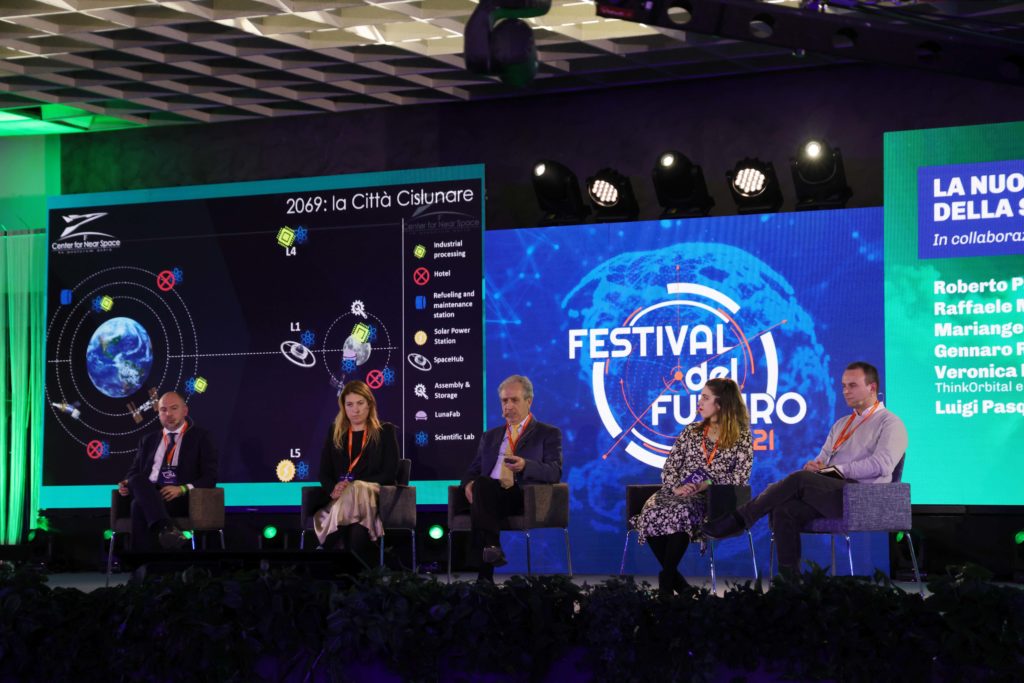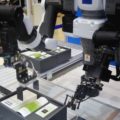
The new frontier of the space economy, environmental challenges, health emergencies after the pandemic. The closed round tables embrace the hottest topics the first day of the Festival of the Future, event promoted by the Athesis Publishing Group, Harvard Business Review Italy and Business Excellence, now in its third edition.
The first panel of the afternoon, entitled "After the pandemic: how we will face future global crises", saw Roberto Giacobazzi, lecturer and pro-rector of the University of Verona, the director general for reforms of the European Commission Mario Nava, the scientific director of Humanitas Alberto Mantovani is Sergio Abrignani, lecturer at the University of Milan. All agreed on the predictability of the health emergency. "Not a question of if, but when", was not a question of "if", but of "when": the Covid 19 virus, while not unexpected, he found everyone unprepared. The history of mankind has been marked, over the centuries, by pandemics and wars, which have changed the face of entire cities, regions, countries: at this juncture, the more enlightened politics can be, the better citizens will be able to get out of it. . Several lessons to be treasured in view of a potential new health emergency, on which the speakers agreed: the experience lived in the last two years has allowed, in fact, to understand the importance of research, which has led to rapidly developing vaccines, technologies, public-private collaboration, and the efficiency of the national health system.
From health to space with "The new frontier of the Space Economy", a round table attended by Roberto Paura, president of the Italian Institute for the Future, Raffaele Mauro, general partner of Primo Space, Mariangela Dejana, institutional business development manager of D-Orbit, the director of Center for Near Space of the Italian Institute for the Future Gennaro Russian, Veronica Moronese, expert in space law and legal director of ThinkOrbital as well as chief scientist of Center for Near Space e Luigi Pasquali, CEO of Telespazio. The space economy sector, or the value chain that generates innovative value-added products and services starting from space infrastructures and digital technologies, is entering a new era. Today it is no longer just technological innovation but also business innovation, with great opportunities for businesses, institutions and citizens. The numbers related to this sector certify it. In 2020, turnover was close to 420 billion euros, with 4.8 billion investments in startups, and the most modest estimates speak of a trillion in turnover between now and 2030. This is possible because the space economy has moved from a niche sector to a highly transversal sector, with many applications and new services in traditional sectors such as agriculture, health, insurance, environmental protection, utilities and logistics.
She then went up on stage Maria Cristina Piovesana, vice president for the environment, sustainability and culture of Confindustria, according to which if there is hope for sustainability and the environment, that hope is called industry: "What not many years ago was a combination considered in opposition - business and the environment - today it is the expression of a great alliance and a great hope ”, explained Piovesana. “And this for two reasons: the first, because the men and women who work in our companies are the same citizens and young people who believe in the need to behave towards sustainability. The second, because our companies are custodians of those skills and technologies that today are at the service of the objectives that, here, I would not like to define as sustainability, but for the future ”.
At the end of the speeches he made his debut Future Arena, the new format dedicated to startups and innovation. Enrico Pandian, founder of StartupGym and various other startups including Supermercato24, provided some advice to aspiring entrepreneurs: "Companies must start thinking differently, looking at the market and understanding that the consumer is changing, thanks also to the strong push that occurred towards digital. And then we need to hire talents who come from worlds different from ours, because they can help us see our business model in a new perspective ".
Michele Trunks, president of the Speedhub Foundation, Denis Faccioli, president of the Tech4life regional innovative network, Franco Smoke me, of Ice Lab of the University of Verona, e Massimo Pasquali, in charge of coordinating the companies of Banco Bpm, participated in the round table “When innovation makes a network”, underlining the importance of teaming up in this particular historical moment. To overcome the crisis linked to the health emergency it is necessary to focus together on innovation, changing mentality, leveraging young talents and asking for financial support to help companies grow.
In conclusion, the Enactus project was presented with Marta Bertolai and Francesca Chiesa from Enactus Italia.
Cover photo: Mauro, Dejana, Russo, Moronese, Paura, Festival del Futuro, the new frontier of the Space Economy, Verona 18 November 2021. Fotolive Filippo Venezia






